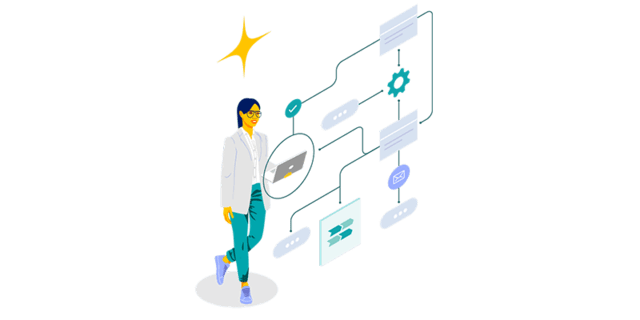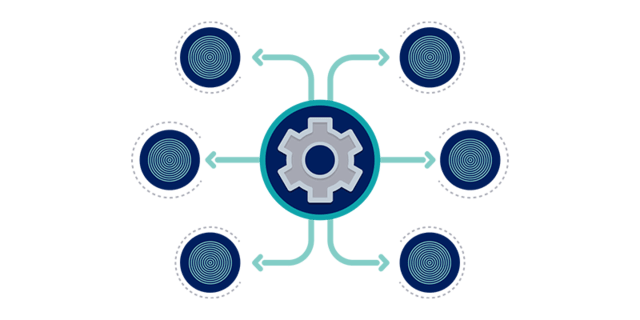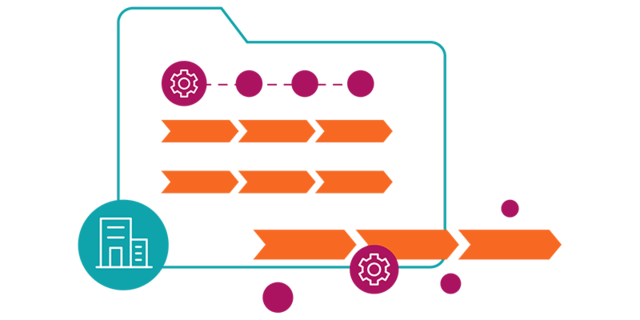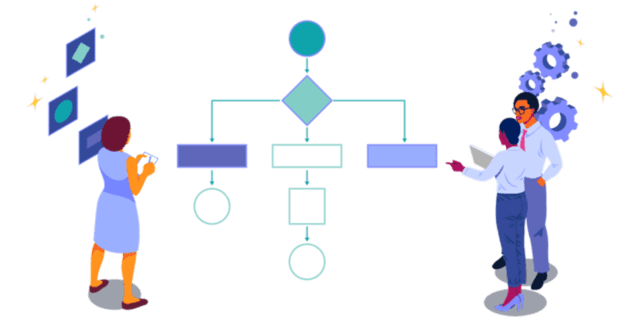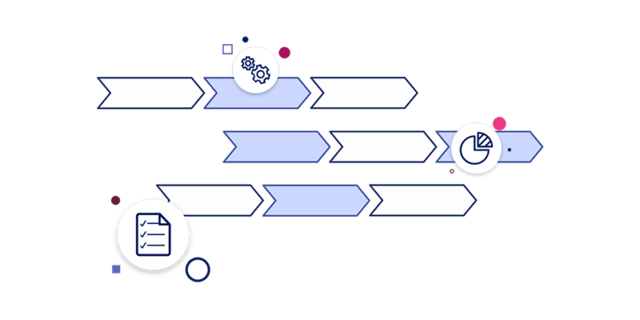
Business Rules Engine

What is a business rules engine?
Business rules automate complicated processes, like what might best serve a customer based on specific criteria. Setting rules within a company’s applications transforms ideas and goals into actions and outcomes while eliminating inefficiencies. It accelerates processes, allows easy scalability, and frees resources to focus on innovation and growth.
How does a business rules engine work?
It starts with our Directly Capture Objectives (DCO), a shared visual model in which stakeholders identify goals, translate goals into applications, and which creates documentation that ties back to application settings. Integration of real-time customer data lets you customize relevant, actionable processes or interactions per user type.
Using a business rules engine
The business rules engine is the central location where your rules are created, stored and updated to meet your business’s changing needs and regulations. Within the Pega Platform, these rules live in the Marketing and Customer Decision Hub. You can test new rules on the fly and implement with ease, without waiting for long-term enterprise updates.
How a business rules engine transforms enterprises
Introducing a business rules engine into your organization is the first step in equipping it for the future. Because business rules allow for ongoing updates, adjustments and real-time testing, they’re a powerful tool to meet customers where they are in a quickly changing digital landscape at scale.
Benefits of a business rules engine
- Automating once-complex processes frees up your workforce to focus on innovation and more meaningful projects that ultimately grow your business.
- Placing business rules in a company’s applications allows rapid transformation, at scale, with responsible agility to continually evolve without starting from scratch.
- Making decisions about customer engagement is easier, more efficient and more effective. Real-time first-party customer data lets you customize and update relevant interactions, fast.
- Take app development from current silos and empower stakeholders from every team to establish goals and automate solutions to achieve them.


What does a business rules engine do?
A business rules engine allows non-IT stakeholders to define create a series of rules, or steps, that automate complex processes. The rules exist within an organization’s applications to replace manual work, like processing loan applications, with efficient, scalable systems, responsibly.


Rabobank used Pega’s platform to streamline lending
From paperwork-heavy processes that could take weeks to digitized workflows and approvals in seconds.

Use cases and examples
Discover how this powerful tool enables organizations to streamline processes, enhance decision-making, and drive meaningful outcomes, regardless of industry:
Financial services
Simplify and accelerate the loan approval process in the financial sector. Financial institutions can automate decision-making by defining rules based on specific criteria, such as credit scores, income levels, and loan amounts. This ensures faster approvals, reduces manual intervention, and enhances operational efficiency.
E-commerce
Imagine tailoring the online shopping experience for each customer in real time. Our business rules engine empowers e-commerce platforms to customize product recommendations, discounts, and promotional offers based on individual customer behavior, preferences, and purchase history.
Healthcare
Hospitals can automate patient care workflows by setting rules for appointment scheduling, treatment plans, and resource allocation. This results in improved efficiency, reduced administrative overhead, and better patient outcomes.
Manufacturing
By defining rules related to production schedules, quality control, and supply chain management, manufacturers can optimize operations and respond rapidly to changing market demands.

How does a business rules engine drive business value?
The business rules engine adds tangible business value to every business process stage. Through strategic decision-making and process optimization, it ensures:
- Efficiency and scalability: Business rules automate complex processes, eliminate manual tasks, and accelerate workflows. Companies can scale operations seamlessly without compromising performance.
- Resource optimization: A business rules engine ensures that routine and repetitive tasks are automated, allowing the workforce to redirect its efforts toward more meaningful projects that contribute to business development.
- Agile adaptability: Centralized within Pega Customer Decision Hub™, the business rules engine empowers organizations to respond swiftly to changing needs and regulations.
- Customer-centric decision-making: Utilize real-time, first-party customer data to make informed decisions about customer engagement. Customize and update interactions swiftly, ensuring that organizations meet customers' evolving expectations.
Frequently Asked Questions about business rules engine


